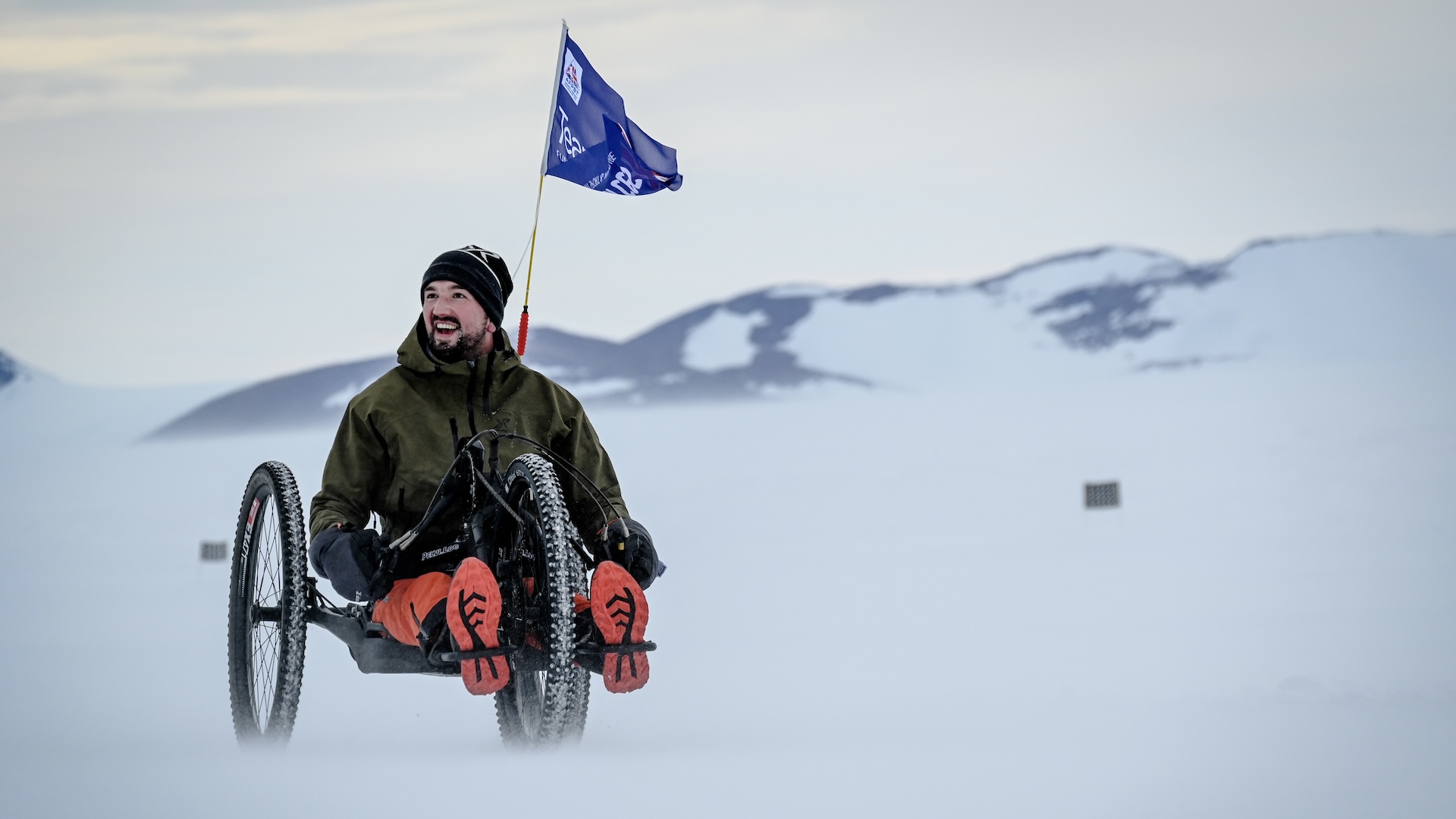
A climber left paralysed from the chest down after a near-fatal fall is taking on the biggest adventure of his life.
Darren Edwards is bidding to complete the furthest expedition by sit-ski in the history of Antarctic exploration. The former civil servant and soldier from Shrewsbury, Shropshire, will attempt to ski 333km to the Geographic South Pole this December.
The challenge is a fund-raiser for the charity Wings for Life, which funds research and clinical trials that aim to find a cure for spinal cord injury.
Darren, 33, said: “I am hugely excited by the opportunity to take on the sit-ski expedition, especially because for years after my accident I did not imagine I would be able to do such challenges.
“It will mean spending time in a truly remote wilderness area and with all the potential dangers of cold, ice and the difficulties that come with a spinal cord injury.
“But, I feel privileged to have the support and capability to be able to go to the Antarctic and to hopefully reach the South Pole.
“I also hope that the adventure will provide inspiration to anyone else who has a spinal injury, or anyone who is struggling and finds themselves in a dark place.”
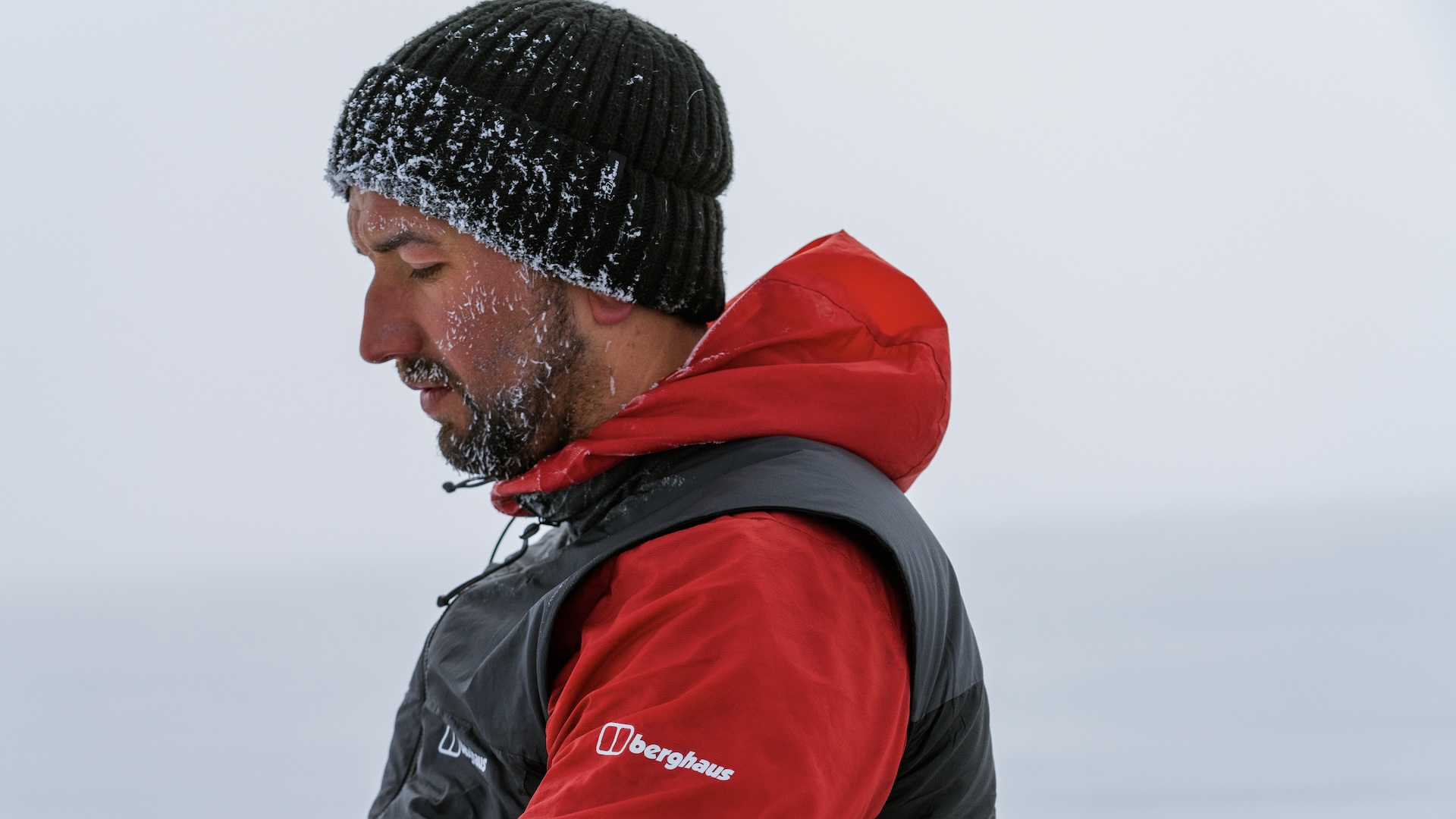
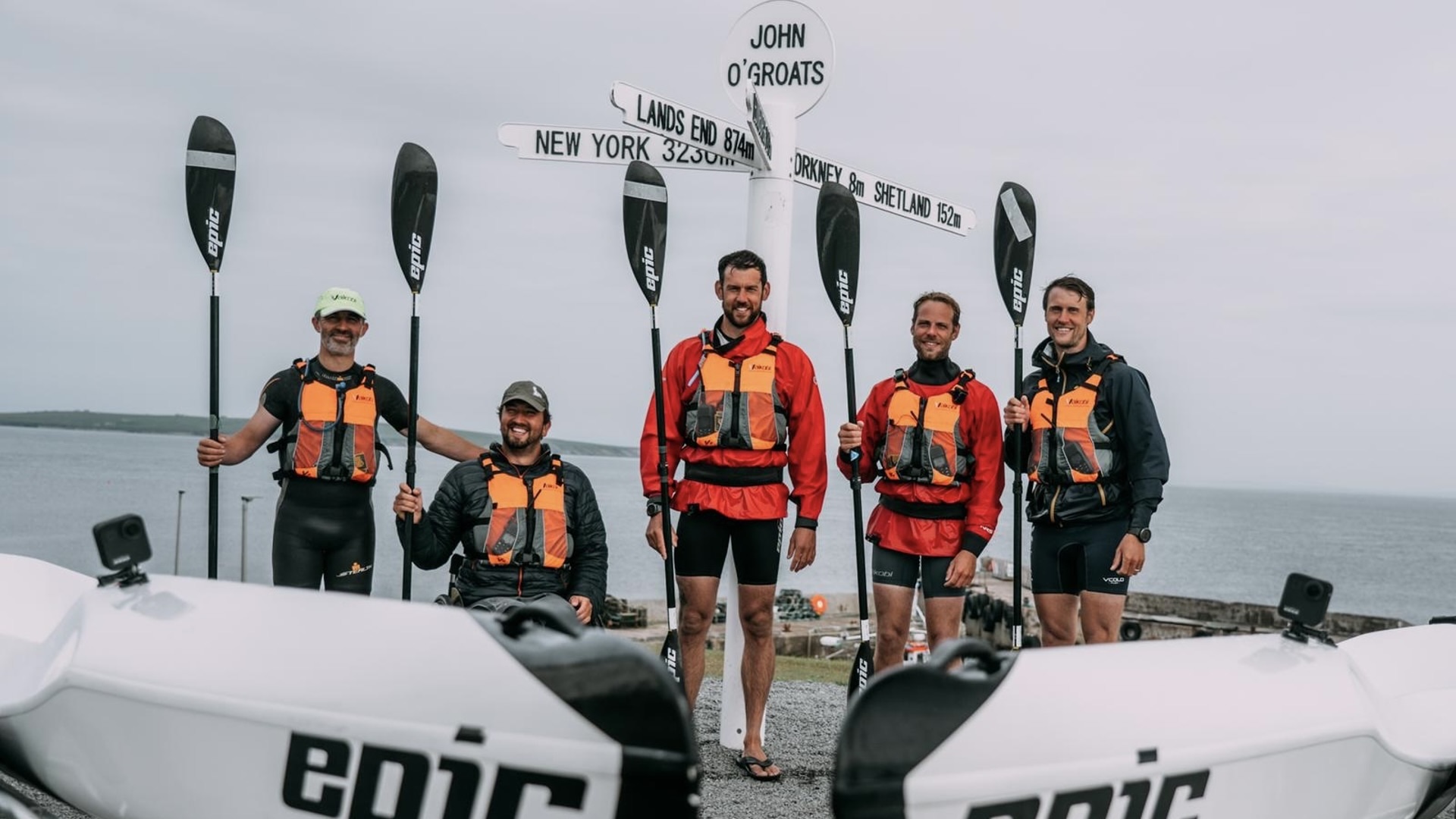
Darren’s dreams of adventure
Before breaking his back and severing his spinal cord as a result of the fall on a cliff face known as World’s End in Wales in 2016, Darren’s dream had been to one day climb Mt Everest. He was inspired as a boy by the book Touching the Void, written by Joe Simpson, which tells a story of the life-or-death pursuits that defined so many pioneers of high-altitude mountaineering.
Darren said: “I knew after I was paralysed that Everest was out for me. Even with the best will in the world, I would be putting other people’s lives at risk by trying to attempt such a feat.
“So, I had to reframe my dreams. I'm fortunate because I was able to take on some great challenges thanks to the support of good friends. For example, I have led injured and wounded veterans on a kayaking expedition from Land’s End to John o’Groats.
“I have also completed seven marathons in seven days on seven continents on a hand-bike and rowed across the English Channel.”.
Earlier this year, Darren, a former Army Reservist, was part of the first all-disabled team to traverse Europe’s largest icecap, Vatnajökull glacier, unsupported and unassisted, on a sit-ski.
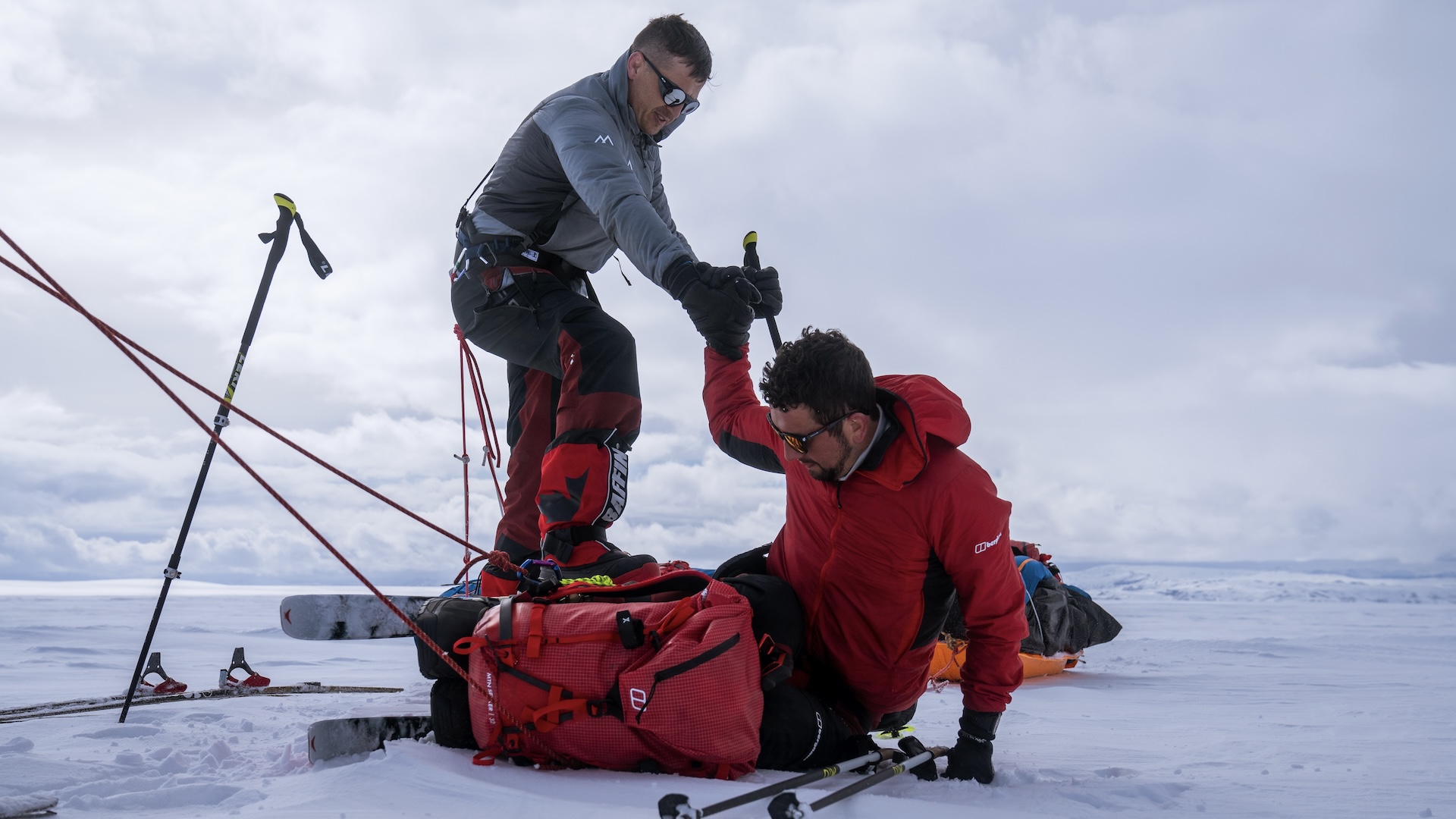
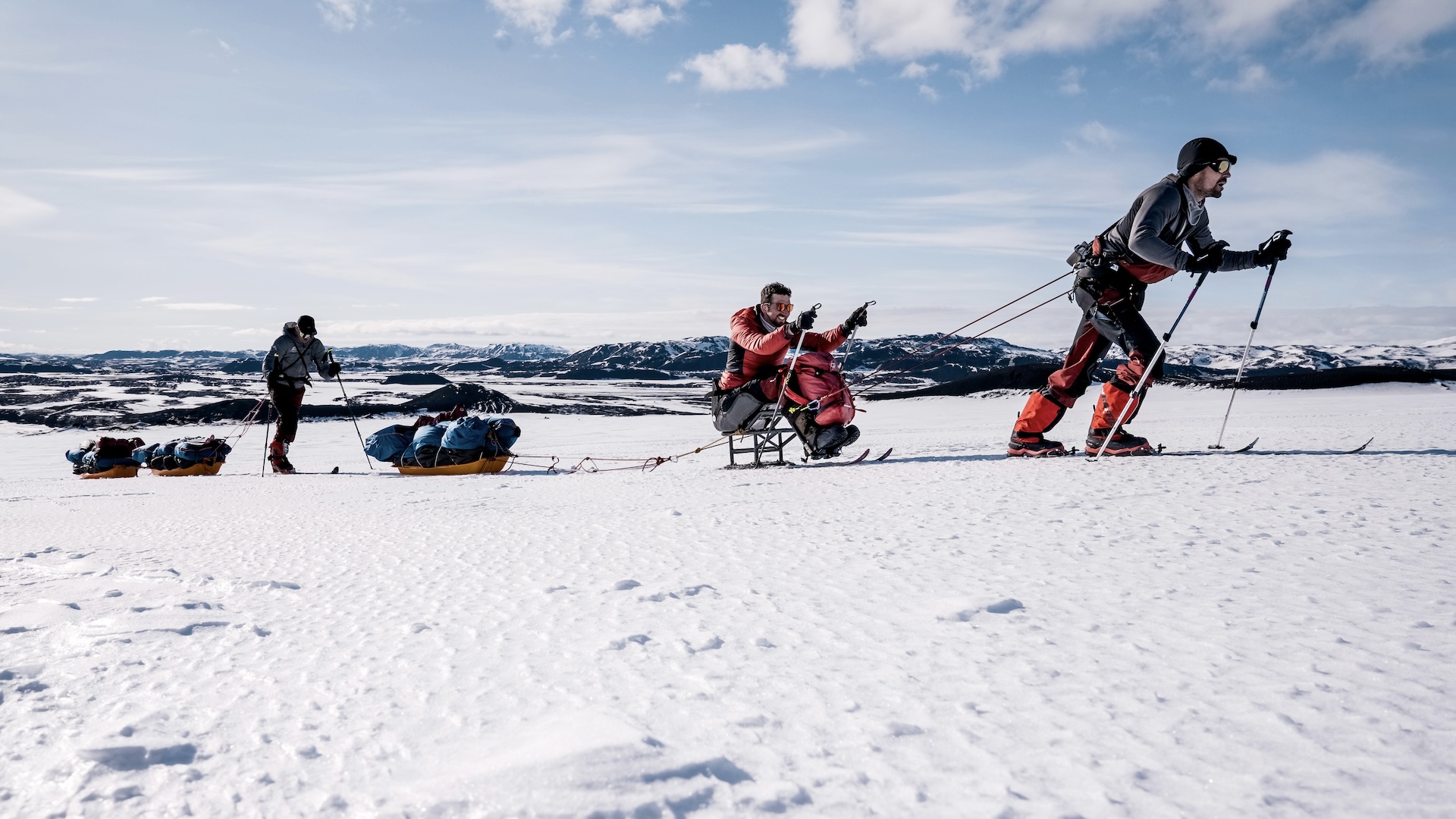
It was during this trip that he experienced what could easily be described as an epiphany. Darren said: “From the time of the accident to half way through the sit-ski expedition in Iceland I would usually think, ‘I can do this, but it would be better if I could walk.’ I was very content in what I had been able to do in the different adventures but it was framed within my thoughts of what I could have done if I had not been paralysed.
“Then, at the highest point on the ice cap Hvannadals Peak at 2110 metres, I suddenly realised I was no longer battling against my limitations. Rather, I was enjoying an immensely special adventure and one that I was able to do because I was paralysed.
“I had, at that point, far exceeded my expectations of what would be possible following the climbing accident. I felt pride and self-acceptance. I was able to shift my perspective on how I see myself.
“This is when I started dreaming of an even bigger adventure – the South Pole expedition.”
Darren, an author and speaker, was surprised at how quickly he gained the support of others to make the dream happen, including two vital sponsors British Airways and Canada Goose.
He said: “The cost of such a trip is very expensive and it is only possible with the financial backing of my sponsors. With that in place, I then thought about who would come with me.
"I need to be supported because there are certain things I can’t do and especially in such a hostile part of the planet.”
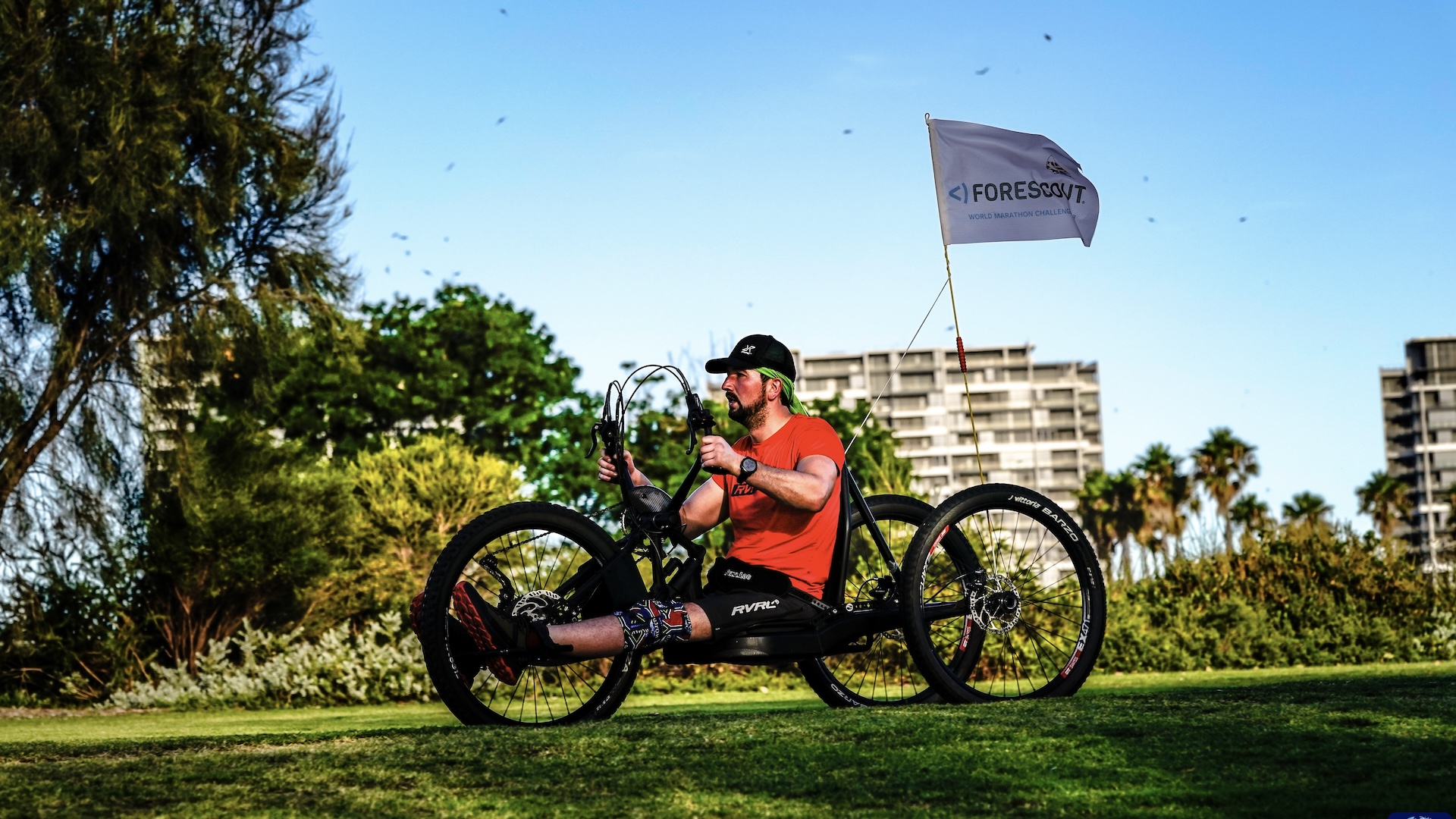
Darren's South Pole challenge
Starting 333km from the Geographical South Pole, referred to as the “last three degrees”, Darren will face temperatures below -20C. He will be operating at the very limit of what is possible for someone with a high-level Spinal Cord Injury (SCI).
Currently, the furthest distance travelled by a sit-ski to reach the South Pole is 111km.
Darren will be accompanied by Chris Brooke, a friend whom he met while on the selection course for the UK Special Forces (Reserve); Matt Luxton, the friend who saved Darren’s life by diving on top of him to prevent him from falling further at World’s End; Justine Gosling, an experienced adventurer, ambassador for Canada Goose and a consultant with the World Health Organisation; and film-maker Matthew Biggar.
Darren, who formerly worked as a civil servant, said: “I will rely on my team to support me although I hope to do as much of the skiing myself as possible. They will also help to transport my kit and ensure I do not end up with frostbite or other issues related to being paralysed, such as pressure sores and urinary infections; the things I can’t feel happening.
“Part of the process of accepting my spinal cord injury has been also accepting help from other people where it makes my life easier. I have had to learn humility and by doing this it has given me greater freedom.”
Darren will need to ski for 10 to 12 hours every day and for around 25 days in total. The aim of his training is to “create resilience”. He said: “I am not training to have big muscles or to be able to go faster. The training is about making myself robust and resilient for an endurance challenge.
“When sit-skiing you are using some muscles a great deal so I need make sure I avoid injury.
“Training includes activities such as kayaking, hand-biking and swimming. I have also recently done a nine-day recce trip on snow and ice in Norway.”
To combat the cold, Darren will sit inside a customised bag made by Canada Goose.
He said: “The Antarctic will be very cold and tough and this type of wilderness does not care about your disability.
“But I am hugely excited to push my personal limits and to show others what is possible.
"It is a once in a lifetime opportunity and I am very grateful to be able to attempt the expedition.”
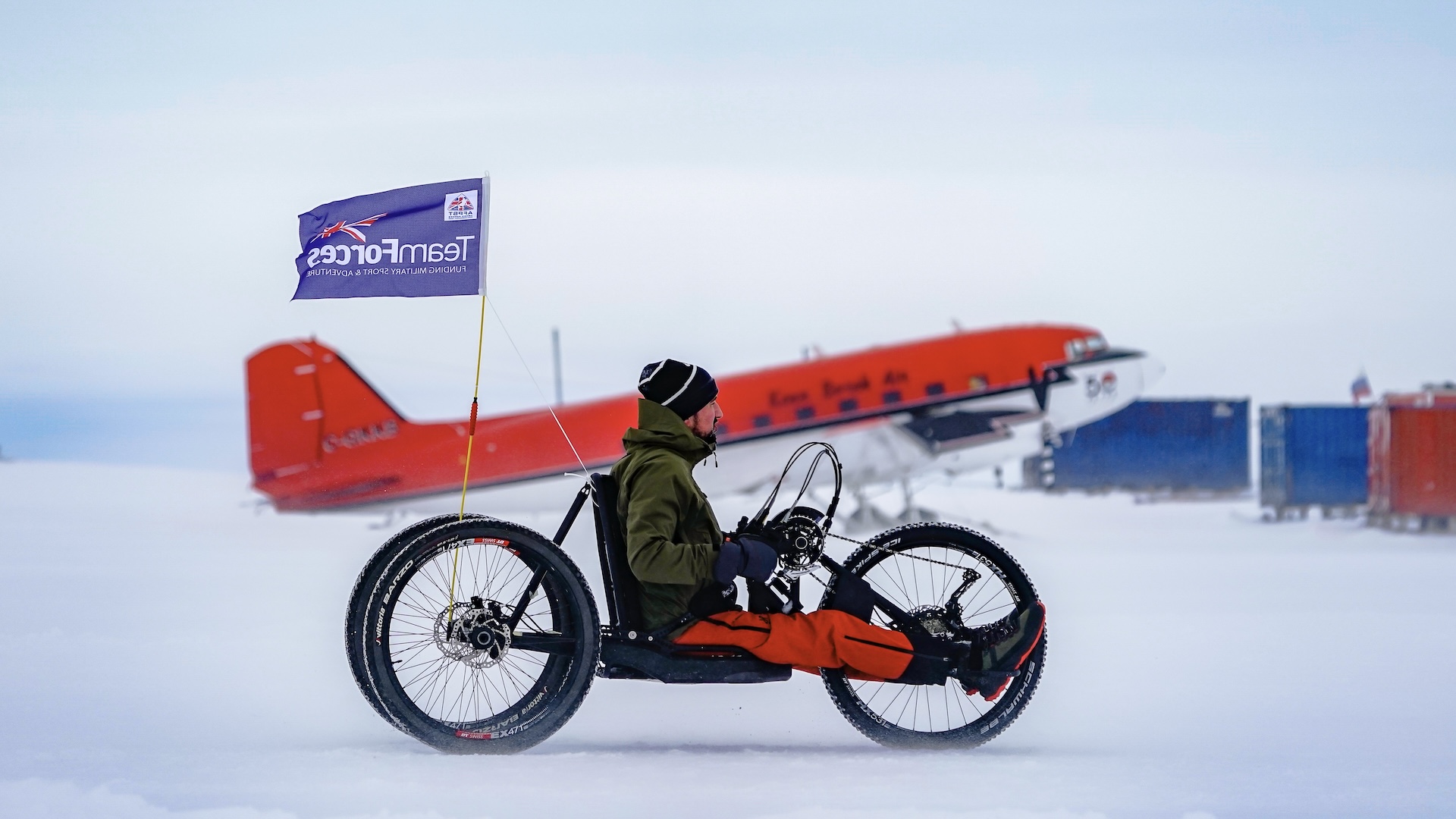
New venture to help others
Realising how fortunate he has been to be supported by other people to explore new challenges and adventures, Darren and a friend Nick Morrall have launched a new venture, Adaptive Expeditions.
Then aim is to be able to give other people with spinal cord injuries the opportunity to enjoy their own trips and expeditions. The vision is to provide individuals with disabilities the same opportunities, support and encouragement to push their boundaries and discover their potential.
Luke Gaskill, an experienced guide, is also supporting the aims of Adaptive Expeditions.
Darren said: “I know myself how much I have gained from being able to take on adventures that I never imagined would be possible due to the spinal cord injury. These trips have given me renewed confidence, pride and a different perspective on my paralysis.
“We want to empower individuals with injuries and disabilities by offering transformative adventures and expeditions.”
This year, the trips will be UK based and then, from 2025, the expeditions will be expanded worldwide.







